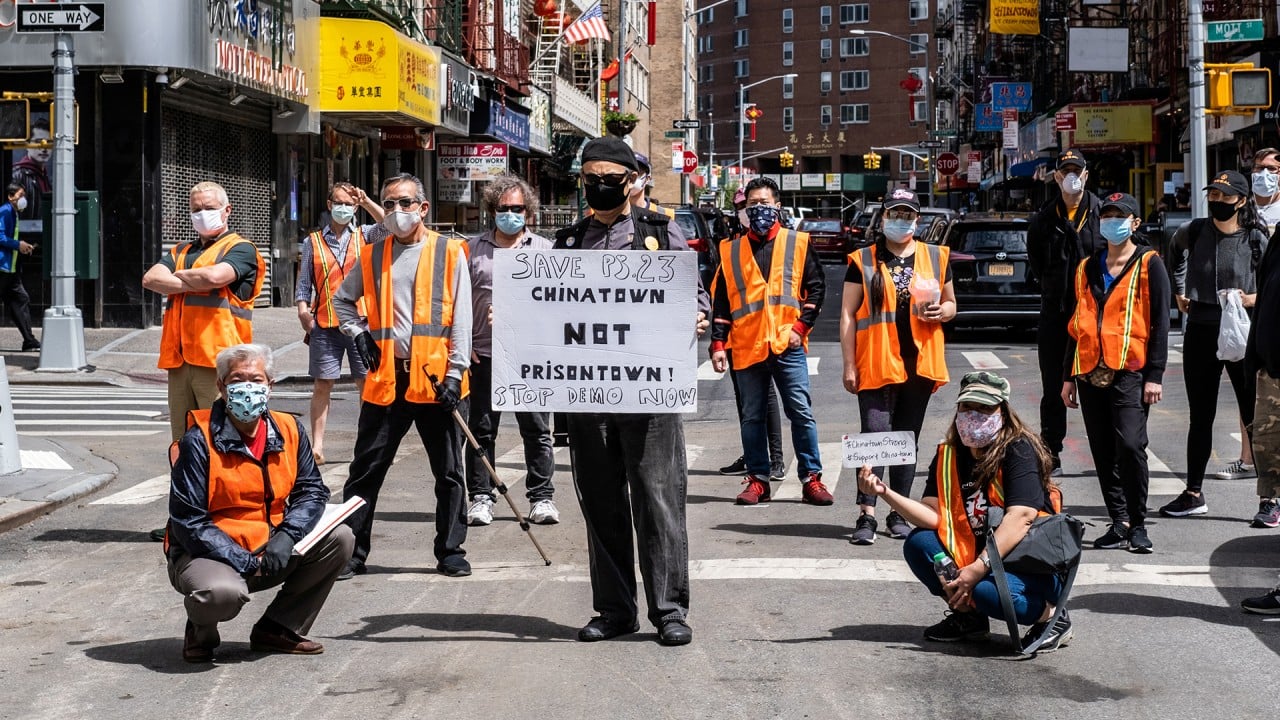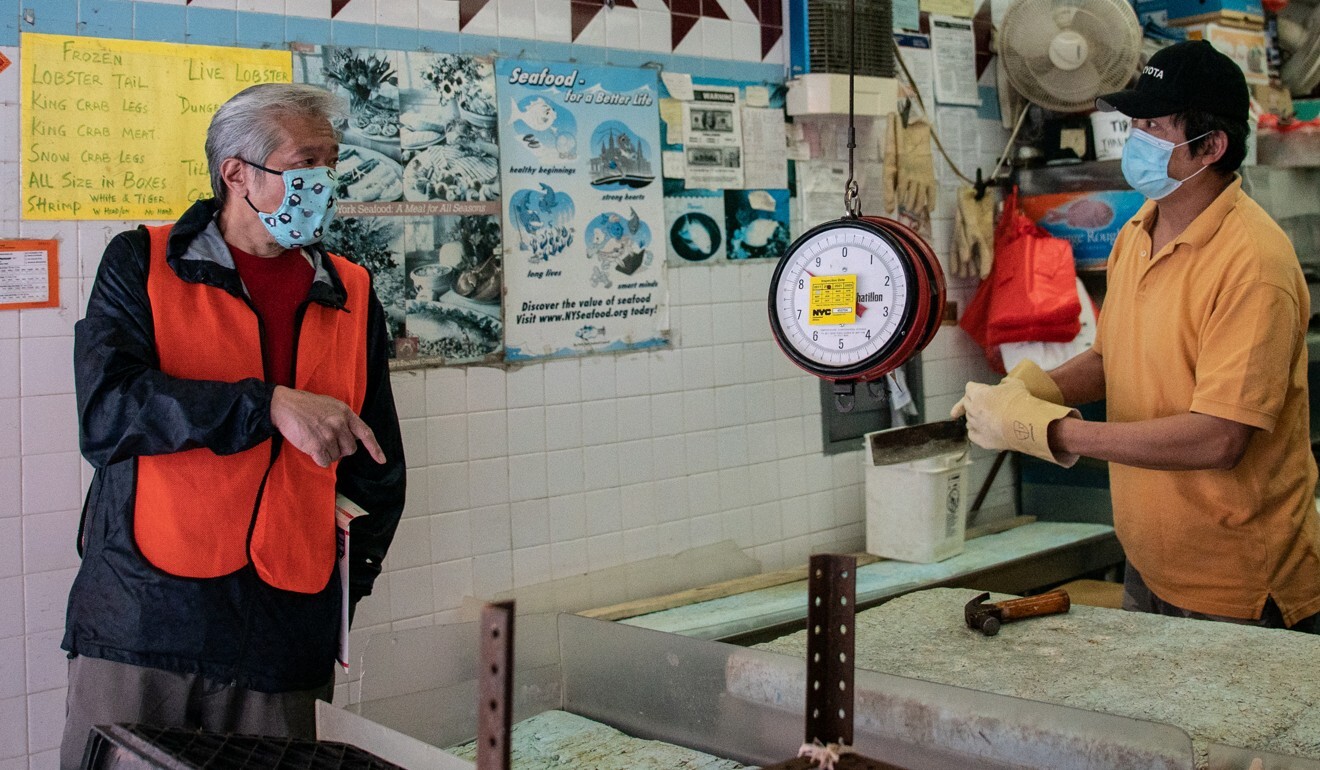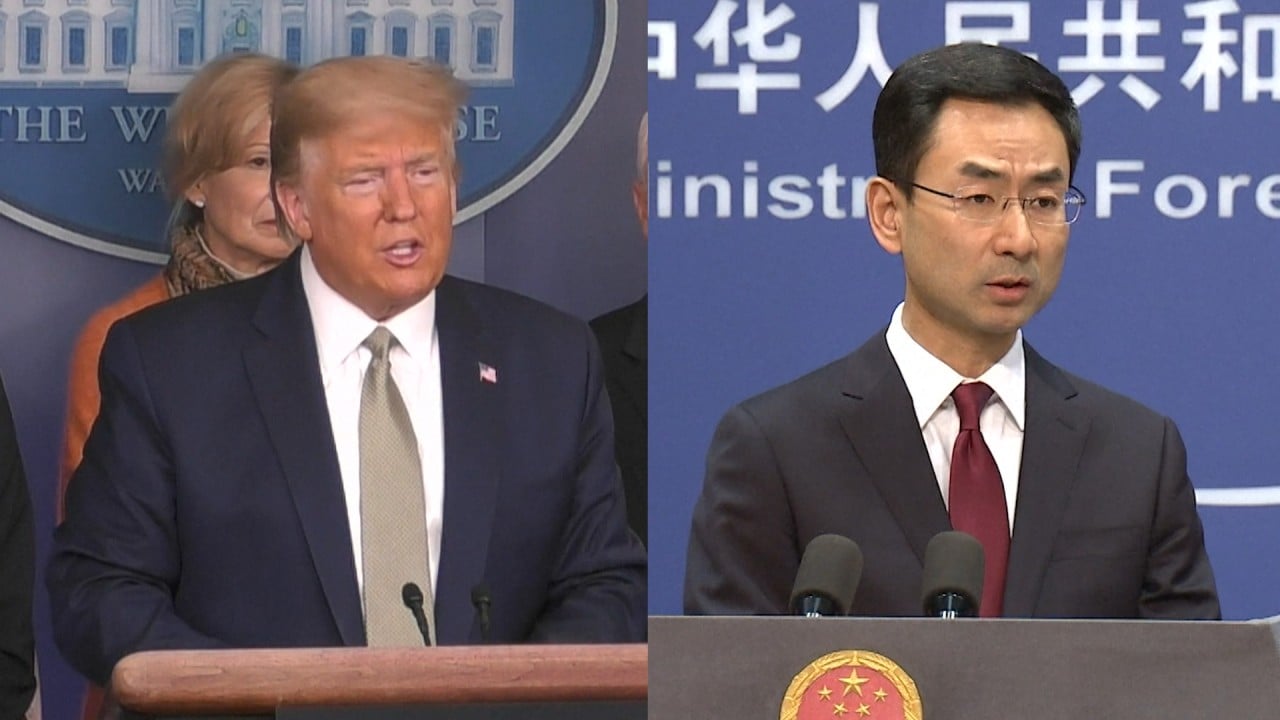
How can a President Joe Biden ‘change the narrative’ for Asian-Americans?
- Executive orders can quickly undo some Trump administration policies that stirred anti-Asian sentiment
- Prominent appointments and a cooling of rhetoric can also help, advocates say, though one concedes ‘some of that hate isn’t going to resolve itself immediately’
As Joe Biden prepares to take the reins in Washington, the stakes have never been higher for the US relationship with China and the rest of Asia. In the latest in a post-election series, Bernd Debusmann Jr explores the steps that advocates for Asian-Americans say should be taken to reduce the hostility that the Trump administration’s policies have encouraged.
In theory, Valley Brook Tea is an unlikely place for a hate crime. The speciality tea store is located on a busy commercial avenue in Washington’s affluent Dupont Circle area, just steps away from some of the most popular bars and cafes, high-end hotels and multimillion-dollar town houses in the nation’s capital, a city which prides itself on tolerance and diversity.
Yet, on a quiet morning last month, this was where a rising wave of xenophobia and anti-Asian sentiment came for 29-year-old Yunhan Zhang, who opened his store in February.
The store’s closed circuit TV captured what happened: a man, wearing red pants and a black jacket, enters the store yelling “Covid-19!” After being told to go away, the agitated assailant pulls out a can of pepper spray, using it on Zhang as he continues to hurl insults – which explicitly contained the term “Chinese” – before fleeing the scene.
For Zhang, an 11-year resident of the United States from China, the motive was clear. It marked the second time, he said, that he had been targeted in an area otherwise known for its safety.

03:41
Asian-Americans, harassed over coronavirus, push back on streets and social media
“This type of hate crime happened to us, again,” he wrote on Twitter the day of the incident. “It seems we’re the only business that keeps getting harassed and attacked in this neighbourhood.”
Zhang is not alone. Across the country, organisations that track discrimination, harassment and violence against Asian-Americans have noted a steady rise in incidents throughout the four years of the Trump administration.
Incidents were already on the rise as a result of US President Donald Trump’s contentious relationship with China and harsh immigration policies – but overt displays of discrimination spiked during the Covid-19 pandemic.
The Stop AAPI Hate Reporting Centre, a California-based group that monitors attacks on Asian-Americans and Pacific Islanders, for example, reported more than 2,700 incidents between March and late October alone – a figure the organisation believes is just the “tip of the iceberg”.
To combat this wave of xenophobia and anti-Asian sentiment, policy experts and community activists believe that Joe Biden’s incoming administration can take a number of steps, starting with a rapid reversal of Trump’s immigration policies.

John Yang, the president and executive director of Asian Americans Advancing Justice, a Washington-based civil rights group, said that ending many of these policies would help “change the narrative” regarding Asian-Americans.
“Immediately, we’d expect the [incoming] president to take a number of measures by executive order, or rescind executive orders that have hurt immigrants,” he said. “This has a direct impact on the population, but also sends a message that immigrants are welcome in the United States.”
Asian-Americans hope for less racism under Joe Biden
One step that Biden could take through executive order, Yang said, was dropping the “public charge” rule that allowed immigration officials to deny “green cards” – permanent residency – to immigrants who might need public assistance, like food stamps. Opponents of the measure, first announced in 2018, have termed it a “wealth test” for immigrants.
“For the last four years, the narrative has been that immigrants are not welcome here, and that communities of colour are somehow a threat,” Yang added. “That has to change, and that can change through executive orders.”
Other steps could include facilitating H1-B visas, which allow US employers to temporarily employ foreign nationals in specialised occupations.

03:06
Comedians in New York fight racism with coronavirus-themed show
In October, the Trump administration said it would impose salary requirements – of US$150,000 to US$250,000 a year, depending on location and job title – on companies employing these skilled overseas workers.
At the time, the government said that the primary purpose of the change was to “reflect the actual wages earned by US workers similarly employed to foreign workers”.
Asians suffering racism find solace in Subtle Asian Traits Facebook group
Government statistics show that most of the almost 600,000 H1-B visa holders in the US are from China and India. Earlier in the year, Trump signed an executive order suspending an array of worker visas – including H1-Bs – before that decision was overturned by a federal judge. The announcement regarding the salary requirements came the following week.
Last week, a federal judge in California struck down the revised Trump administration rules.
Doing away with H1-B visa restrictions “would send a strong signal that immigrants are welcome and that vilifying various groups isn’t appropriate”, said Russell Jeung, the Stop AAPI Hate chair and an Asian American Studies professor at San Francisco State University.

“We recommend reversing immigration bans and stopping the suspension of visas for Chinese researchers and students, as well as rescinding the ban on racial sensitivity training” at federal agencies, he added. “In the first 100 days, a lot can be done to signal that we’re ending racist policies.”
Many of these steps were outlined by the Biden campaign in an agenda for Asian-Americans and Pacific Islanders released ahead of the November election.
Biden vowed to provide a “road map” to citizenship for undocumented immigrants, including 1.7 million from Asia. He also promised to support family-based immigration and increase the number of visas offered for permanent, work-based immigration.
The Biden transition team did not respond to a request for comment on its plans for the Asian-American community.
Foreign policy and Asian-Americans
Policy experts believe that a change in tone from the president and other administration officials on relations with China would have an important impact on how Asian-Americans are perceived in the US.
Jeung said that Stop AAPI Hate believes a “more sane, diplomatic foreign policy” – rather than a “heated cold war” – will help ease feelings of animosity towards Chinese and Asian-Americans in communities across the country.

03:01
Trump angers Beijing with ‘Chinese virus’ tweet
“We’ve seen how US-China relations have impacted domestic race relations,” he said. “You can be critical, but you also need to acknowledge that a critique of China’s policies doesn’t necessarily mean we should vilify Chinese people.”
This rhetoric, Jeung added, became more pronounced during the pandemic, which Trump repeatedly termed the “Chinese Virus” and “Kung Flu”. Hundreds of incidents of harassment have been recorded in which similar terms were used.
Biden promises to tackle China’s ‘unfair trade practices’
“The tone in which Trump mocked Chinese people and joked about the pandemic really gave people license to also attack the people, rather than criticise a government’s policies,” Jeung said. “We’re portrayed as outsiders and we need to have a greater sense that everyone can belong to the United States. It has a tangible impact.”
Friendly faces in the White House?
Many Chinese-American community organisers believe that having Asian-American figures in Biden’s cabinet or in other high-level administration positions would serve as an important symbol.
“It would be great to see Chinese and Asian-American appointees,” said Leanna Louie, a founder of the United Peace Collaborative, a registered non-profit organisation in San Francisco that has patrolled the city’s Chinatown during the pandemic.
“If other Asians see that someone, like [businessman and former presidential candidate] Andrew Yang was in the cabinet, they’d think to get involved and help the community,” she added.
“People need to think of the community as a whole rather than just themselves.”

Trump does have one Asian-American in his cabinet: Taiwan-born Secretary of Transportation Elaine Chao, a long-time Republican figure who previously served as Secretary of Labor in the Bush administration.
Last week, Trump also nominated Chao, the wife of Senate majority leader Mitch McConnell, to the board of trustees of the John F. Kennedy Centre for the Performing Arts.
“Having an immigrant background doesn’t mean you represent the interest of immigrants, or support those of different class or racial backgrounds,” Jeung said of Chao. “She hasn’t had much impact … she either doesn’t have a voice on those issues in the administration or hasn’t been a strong enough advocate.”
Joe Biden to name Katherine Tai for top trade job
Looking ahead to the Biden administration, Jeung said that he believes that the presence of Vice-President-elect Kamala Harris – whose mother was from India – will have a beneficial impact on Americans whose families originated in other parts of Asia.
“She’s the daughter of immigrants and talks about her mother. That makes a difference to the community. It’s not about having diversity for diversity’s sake, it’s about having a diverse cabinet that understands all the different issues that we have to grapple with in the country,” he said.
“Having a cabinet that reflects the complexity of America will only make the government stronger.”

On Thursday, the Biden transition team announced that Katherine Tai, now the chief trade lawyer for the House Ways and Means Committee, would be nominated to the Cabinet-level position of US Trade Representative.
If confirmed by the Senate, Tai, a Taiwanese-American, will be the first Asian-American and first woman of colour to hold the position.
“I cannot stress the importance of naming Katie Tai as US Trade Representative,” Jeung said. “US-China relations have deteriorated to China-bashing, and subsequently physical bashings of Chinese and Asians in the US.
“Other Americans need to see an Asian-American public official representing the US, and building bridges, not walls.”
No quick fix
Even if Biden were to immediately reverse Trump’s immigration policies and soften his tone on China when he takes office on January 20, experts warn that a higher level of anti-Chinese and anti-Asian sentiment is likely to remain for years to come.
“Unfortunately, some of the damage has been done. Especially as we do not see a near-term resolution of Covid-19, there will be people that continue to blame Asian-Americans for the pandemic,” Jeung said.
“Some of that hate isn’t going to resolve itself immediately. That will cause tensions with respect to anti-Asian racism in the community,” he added. “But better rhetoric from the top is going to help immensely.”
Donald Trump’s plan to steal the limelight before he leaves the White House
Karlin Chan, a community activist and lifelong resident of New York’s Chinatown who organises “block watch” patrols to safeguard local residents, said that the anti-Asian sentiment of the Trump era is merely another in a long series of difficult periods for the community in the United States.
“Once a monster rears its ugly head, it takes years to subside. It’s like the ripples when you throw a big stone into a calm lake,” he said. “It will be years before we overcome this xenophobia.”









